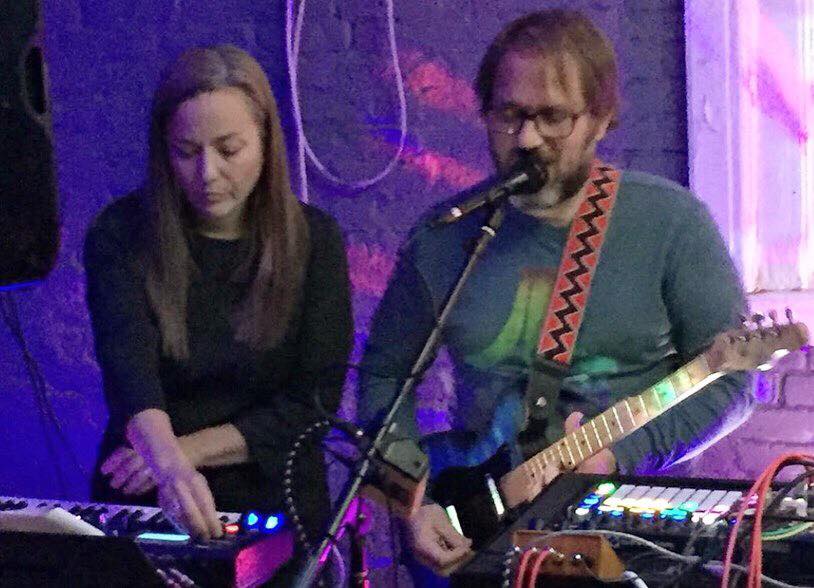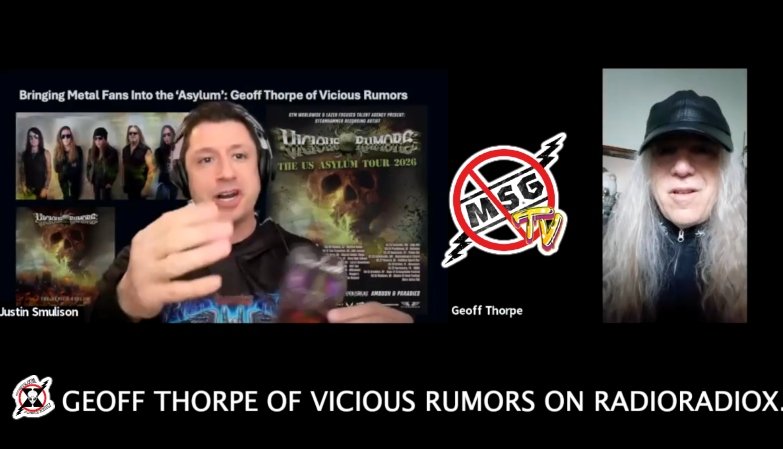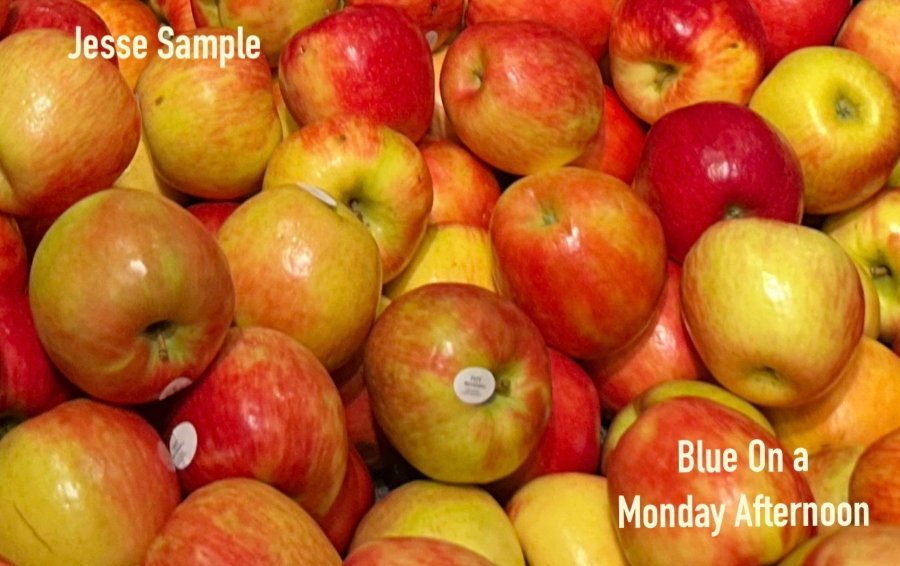William Deuel – When the Heartstrings are Copper
Written by Staff on June 27, 2020
There are two ways to look at music. One way is the way we see it when we go to a show, dance, hang out, and boy, is the band putting on a show! But the other way is to understand that every song starts as a seed of feeling, sometimes a complex feeling, one that we wrestle with, and we wrap it in treble and bass, fertilize it in harmonies and melodies and only then can we marvel at the bloom.
The William Deuel Band, consisting of William Deuel (vocals, rhythm and lead guitar), Michael Norris (lead guitar), Chris Reed (drums), and Ethan Henderson (bass) have planted two gardens (Reset and Whaddaya Say.) We sit down with William Deuel and talk horticulture.
RRX: Music is first aid for so many people, not just in listening, but in creating. A lot of great albums came from someone needing an outlet for a tough time in their lives. Have you had a period like this? And if you have, can you compare it to a more deliberative songwriting process?
 WD: Actually, that exact scenario is what brought me to write my first LP, Reset. I had lost a number of people very close to me in a very short period of time, including my mother to cancer and one of my best friends unexpectedly, which in turn had put me in a rather dark period of time. To cope with these circumstances, I would play my acoustic guitar for hours on end, not with any intent of songwriting. Music just poured out of me and I started to take note, which in turn led me to my first song, “Gravel Road”, about an experience with my friend while traveling the backroads of Nebraska. Before I knew it I had written over a dozen songs in less than a month and whittled them down to eight for the LP. By the time I got to my second record, a five song EP, Whaddaya Say, less than a year later, I had developed my own style of songwriting, some with a central idea and others from my subconscious and just letting the song work itself out on its own. I generally prefer to write in the latter style as it sometimes even surprises me with what I come up with. I also try to write in a way that people can relate the song to their own lives and take their own meaning, rather than from my own experiences.
WD: Actually, that exact scenario is what brought me to write my first LP, Reset. I had lost a number of people very close to me in a very short period of time, including my mother to cancer and one of my best friends unexpectedly, which in turn had put me in a rather dark period of time. To cope with these circumstances, I would play my acoustic guitar for hours on end, not with any intent of songwriting. Music just poured out of me and I started to take note, which in turn led me to my first song, “Gravel Road”, about an experience with my friend while traveling the backroads of Nebraska. Before I knew it I had written over a dozen songs in less than a month and whittled them down to eight for the LP. By the time I got to my second record, a five song EP, Whaddaya Say, less than a year later, I had developed my own style of songwriting, some with a central idea and others from my subconscious and just letting the song work itself out on its own. I generally prefer to write in the latter style as it sometimes even surprises me with what I come up with. I also try to write in a way that people can relate the song to their own lives and take their own meaning, rather than from my own experiences.
RRX: When you were putting your first album out, you reached out to your guitar player, Mike Norris, because he has a pretty signature sound. Which is interesting that any musician evolves to the point that their sound is unique enough to be considered ‘signature’. Can you explain this a little bit?
WD: Mike and I grew up together and were in a band while in high school, where he was the lead guitar player while I was the drummer. Once I started writing all the songs for the Reset LP, I was taken back to those long ago days and the sound of Mike’s guitar was stuck in my head. I knew his style and sound were perfect for a few of those songs. We had fallen out of touch, with Mike moving to Boston and starting a family while I went my own way, training and riding racehorses throughout the country. It had been over 20 years since we had any contact but I had never lost that sound he can create while playing guitar. The notes spring from his telecaster, very decisive and very bluesy, and I invited him to play on a few of the songs. He played on “Gravel Road”, and as soon as I heard the original playback, I was transported back in time and knew I had made a great decision to reunite with an old friend and bandmate. Our styles are different, with my sound a little more on the grungy side, but work well when put together. He makes me a better player and we play off what the other is doing, while taking some pressure off of me, especially when playing live, so I can concentrate on vocals and rhythm guitar. Mike is a wonderful person and I feel blessed to have him back in my life as well as a bandmate when time allows it.
RRX: You started out as a drummer before fronting your own band. And drums have such a foundational role in music, but it also, in even a physical way, is the background position. Does what you knew from drums, or even just that core rhythm mindset help you bring the whole sound together?
WD: Being a former drummer has helped me immensely, especially while playing live. We are so fortunate to have a really awesome drummer in Chris Reed, who makes life for me up front a whole lot easier. Sitting behind the band and taking in and seeing everything unfold is the unique position of the drummer. Chris can cue me and the band to make a change within a song with a simple roll, and being a former drummer I tend to look and feel these cues from him as he is sitting in the catbird seat. I also tend to play off the drummer rather than the bass. This allows the other guys to play what and how they want – as maybe Ethan (Henderson) is playing something that just doesn’t mimic what I am doing, and Mike can be playing a lead during a verse – and I can stay grounded in the song while listening to what Chris is paying on the drums. I generally play off the bass drum.
RRX: You’ve had an amazing life experience in training professional racehorses. This has taken you all over the country, maybe even the world. But, as with all things, it gives you skills that you can bring to the music. Is there anything, the discipline of your experiences, the knowledge of the race, that you can take into studio, or on the stage?
WD: First off, you are as good as the people you surround yourself with! You are as good as your team. Training a racehorse is a total team effort just to get a horse to the races. You need your groom, exercise rider, and owner to all be on the same page and you need to actually listen to what they have to say rather than just give them lip service. I take that same mentality into the band construct. I want and need everyone’s opinion, from sound, chord changes, tempo changes, and how well lyrics work for any particular song. With everyone on the same page you have a fighting chance and that will show in the final product. It’s not easy being in a band with many personalities and opinions, but once you get through the little things, the bigger picture comes right together.
RRX: There’s always a split between the dream and the reality. We have a vision, or in this case an audio that we think we’ll achieve, and then we lay down that song and it’s different. How do you feel your sound comes out when you step out of the studio from what you thought it would be when you walk in?
WD: I usually have a pretty good idea of what a song is all about by the time I bring it to the band, in a very general sense. In the case of the first two records, I had the songs pretty much where I wanted them when we went in to record them. Certainly that was the case with the first LP, as the songs were so personal to me and were a direct response to how I was feeling at that time. The second time around was a bit different, with a little more input from the guys in the band. Everyone gets to play their part in a song as they see fit so long as it works. For example, I played most of the bass parts on the first two records, as Ethan was not yet on board. Now that he is in the band he plays those parts, as well as anything new, as he sees fit. He is much more talented than I am on that instrument, it would be foolish for me to interfere in any way. All the guys in the band are really talented musicians and are free to do their own thing. Chris is also our recording engineer so he gets more say on certain things and I usually defer to him, as he is the one with all this training and experience. He advised me on some background vocals on a song called “Always” that totally transformed the song, so in circumstances like that the song takes a different turn from what I had originally heard in my head. How did I feel about that? Awsome! Sometimes the unexpected can just be wonderful.
RRX: Musically, you’re a pro-local band. You record in the Capital Region and have the mastering done here too. Keeping the recording process in the Capital District gives everything a true ‘Capital District’ sound. Has anyone outside of the area noticed this, or do they just notice the music? And would you buy instruments made and sourced here?
WD: It has always been my intent to keep any money spent with businesses here in the Capital District. I also wanted the feel of a privately owned business where you can have a one-on-one relationship with the people you are working with. I really wanted to support as many people in my own community as possible and knew many of them through various connections. For example, I knew of Jason Brown, who owns Starling Studios here in Saratoga and does our mastering work, through my occasional background singer and wife, Michelle Paquette-Deuel. Michelle works at Skidmore College and is friends with Joel Brown, who is a Distinguished Artist-in-Residence there and is Jason’s father. Jason seemed like a no-brainer with his own impressive credentials, and that has proven to be right on point. Jason is very intuitive, knows what I’m looking for in the mastering process, and could not be a better fit. I picked up on the Glens Falls Music Academy through an article I read in the Post-Star. I loved Chris Reed’s story and looked him up. It proved to be a wonderful choice, and after meeting with Chris I have been recording with him ever since and our relationship has progressed to the point where he is not only the sound engineer, he is also the drummer for the band. I have done some interviews during which our support of the local scene has been noticed, such as with Tatiana Tenreyro at 103.5 FM (formerly 105.7 FM), as well as Andrea Flanagan on her podcast, Where Music Takes You. Tatiana and Andrea both picked up on that point, which was very pleasing. I have bought my guitars locally, at Saratoga Guitar as well as Guitar Center in Albany. These guitars were not made here but I would certainly consider buying locally-made if it fit my or the band’s needs.
RRX: Here is where you answer the question I didn’t ask. Shout outs, missed connections, directions to a good deli… Educate, enlighten, emote – the floor is yours.
WD: We are now in the process of getting ready for our third album, which has obviously been put on hold during the Covid-19 pandemic. I try to evolve my songwriting with each album to make them somewhat different from the one before. With the band we have now, the new songs are more complex, more varied in their tempo, as well as a more varied sound. Because Mike does not live locally, and both Ethan and Chris are professionals with their own businesses to run, our priority is in the studio and getting airplay rather than every Friday night playing out. We have received tremendous support and lots of air time from a number of local stations, including Art Fredette’s RadioradioX, which was one of the first to give our band a shot. Andy Gregory and WEXT were also right there for us, we also did the interview and played in studio at 103.5 FM, so the local support has been awesome! In addition, we had one of our songs, “Gravel Road”, go to number one on Cliff Broyhill’s Bandwagon Network Radio, located in Ashgrove, Missouri, and many other stations throughout the country play our music. We have also gone worldwide, with songs in the rotation on South Africa’s Zone Radio, many songs in the Top 25 on Banks Radio and 89.5 FM Sweet Sunday Sounds in Australia, and songs being picked up in the UK, Canada, Czech Republic, Germany and Spain. My initial goal was to have a song played on the radio; not only have we far exceeded that expectation, but here we are being interviewed by you, Liam Sweeny at The Xperience Monthly. We can’t thank you enough for this wonderful opportunity!
Author
Staff
You may also like
Continue reading





 RadioRadioX
RadioRadioX